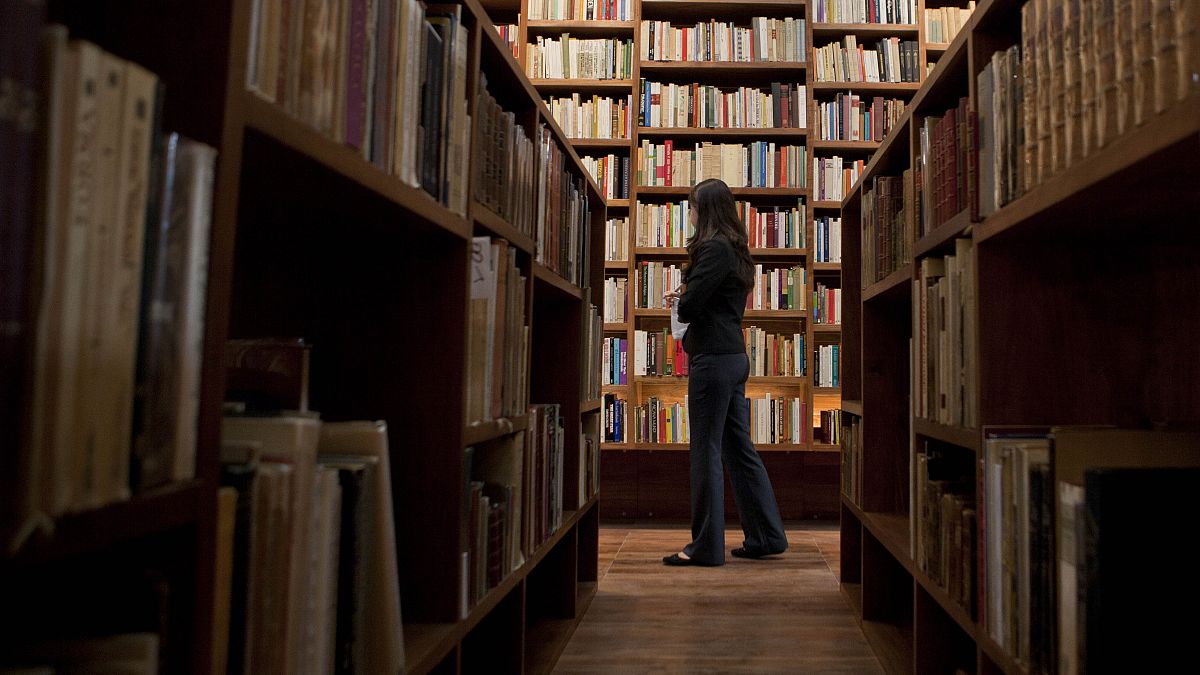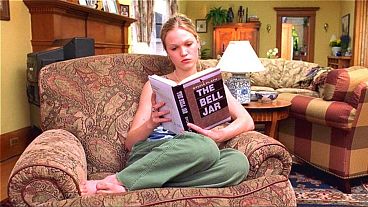2021. Great for independent bookshops, not so crash hot for new writers. Meet the woman writer who knows the industry from both sides.
Lily Lindon is a writer and editor living in London.
She studied English Literature at Cambridge University and was part of the Footlights comedy group. She was an Editor at Vintage, Penguin Random House, before joining The Novelry.
----
During 2021, I experienced the publishing industry from different angles.
I began the year as a Classics Editor at Vintage, a part of Penguin Random House, where I would essentially project manage a list of around 40 titles, a mix of republications and new commissions.
I was working at the largest publisher in the world, but I had never felt more separate from colleagues. Gone were the (admittedly soul-destroying) Zoom parties of 2020; I only had regular contact with my manager.
Apart from the obvious psychological impact of this, all too familiar to anyone working from home, something I found particularly disconcerting was my resulting ignorance about new books.
I hadn’t realised how much my awareness of the contemporary publishing market (and gossip) came from osmosis in the office. I would see books for the first time in a friend’s Tweet, only to discover it was a bestseller from the same company I worked for.
It was a time of weird contradictions. We kept hearing that book sales had never been better. So why did it feel like we were publishing our precious books into an abyss? Part of this was that there were a lot of books being published. 2021’s publishing schedule was doubly full, as publications had been repeatedly postponed since the first lockdown announcement made space even more competitive. Another is that sales were more unevenly distributed.
The ecosystem of publishing has always tended to disproportionately promote a handful of ‘heavy-hitters’ and leave others behind, but in 2021 this was exaggerated. Bestselling celebrities sold better; so-called midlist authors and quieter works struggled. Richard Osman’s second novel, The Man Who Died Twice, become one of the fastest-selling novels since records began, selling 114,202 copies on its first three days of sale, and both this and his debut The Thursday Murder Club are regulars in the weekly Sunday Times bestseller list.
The non-fiction list was dominated by familiar cooking and cleaning books, like multiple spots given to Kay Featherstone’s Pinch Of Nom series.
There would occasionally be wildcards though: especially prompted by the arrival of ‘BookTok’ reviewers TikTok, which has proven power to create bestsellers like Madeline Miller’s The Song of Achilles through readers filming their tear-stained recommendations.
But it isn’t all about the goliaths. 2021 has seen passionate grassroots support of independent bookshops, whether they’re physically open or not. Bookshop.org, a website that allows readers to buy books online while supporting their local independent bookseller, opened in the UK at the end of 2020 and has already established itself as a major ‘socially conscious alternative to Amazon’.
By March it claimed to have raised a million pounds towards the UK’s independent bookshops.
As just one example local to myself, a new independent bookshop Bookbar, which opened in North London at the beginning of the year, had round the block queues on the September publication day of one of the year’s biggest publishing moments, Sally Rooney’s Beautiful World, Where Are You?
In-person events returned in a limited capacity, and October saw Bookshop Day celebrated with author signings and mini-book tours. In a world-first, June saw the newly created royalty fund AuthorSHARE, allowing authors to earn royalties on second-hand books.
Trade publishing has traditionally been a slow-moving beast in most aspects, and one of these ways has been the stagnant job ladder (senior staff often stayed in their jobs for decades, and rare entry-level roles attract hundreds of over-qualified applications).
Yet 2021 was a watershed of movement, with significant promotions, sabbaticals, parental leaves, and behemoths of the industry made redundant. Anecdotally, I struggle to name a single person in my Vintage team who has remained in the same role in which they began the year. I’m optimistic to see the impact of these moves on the actual output from publishers.
The industry’s move online has provided more opportunity for those with previously unmet accessibility needs, both in employment and events.
There has been, at a surface level at least, moves for greater inclusion of underrepresented groups in the industry: as well as publishers setting quotas for demographic representation, and various accessibility schemes such as the PFD agency’s launch of a new Queer Fiction Prize or CrimeFest offering a bursary for a crime writer of colour. The industry news outlet The Bookseller also published dedicated issues with The Black Issue and the LGBTQ+ Special (April) and The Disability (September) to foreground specific concerns and celebrate triumphs. Calls for transparency around wages in the publishing industry finally led to many publishers (including Penguin Random House) to list the salary on their job adverts, as well as supposedly equalising the pay of equivalent roles across all teams.
However, Creative Access data revealed this month shows a disproportionately sharp decline in financial stability for publishing staffers from underrepresented groups.
As gatekeepers of words, publishing has always been a place where ‘freedom of speech’ debates have been particularly loaded.
2021 has shown publishing to be just as politically divided as everywhere else.
J K Rowling and her devotees continue with TERF (trans-exclusionary radical feminist) wars, while the prestigious Women’s Prize caused a furore when it longlisted Detransition Baby, a novel written by trans woman Torrey Peters (the Prize was won by Susanna Clarke’s ‘otherworldly’ Piranesi); Kate Clanchy’s Some Kids I Taught and What They Taught Me, winner of the Orwell Prize, was accused of using racist language to describe children, and its publishers of insensitivity throughout its proofreading process.
WW Norton withdrew a biography of Philip Roth after a series of sexual assault allegations about its author, Blake Bailey. Yet when Jeanette Winterson burnt her books, a symbol of censorship, it was seemingly just because she didn’t like the new covers that she had approved.
The creative lockdown
If the year of further lockdowns has increased people’s reading time, it has also encouraged more people to try writing their own.
The Novelry is an online creative writing course, which enjoyed“massive growth” over the lockdown, expanding its staff to include not only creative writing courses and personal mentoring from published authors, but also an editorial team of publishing professionals (including myself).
In this job, I come face-to-face with some of the tides of people who have been trying to pen their great novel amidst the pandemic. Some of the things I hear repeated are about how the lockdown has been a double-edged sword: providing more time in the home, but no fit mental state to play with disembodied words.
For aspiring authors, the impact of COVID is that getting your book published has never been more competitive. With overworked publishing staff adopting authors from predecessors, and top-heavy bestseller lists, there is less room for ‘smaller’ books. (Aka: pretty much everyone’s.) Agents and editors say they’re turning down even brilliant books because there’s not the available time, budget, or energy for them. Discouraging indeed.
I was one of those people who wrote during lockdown, and in March, the rights to my debut novel (the queer rom-com Double Booked) were sold. Writing Double Booked during my alternative commute was a lifeline for me, and the only time I felt I had some form of control during lockdown: just me and the page, and some made-up problems.
I cheered myself up by writing something fun.
I sent my book out to agents this time last year and signed with one I met at an outdoor café table the day before Christmas was cancelled. Yet if writing and signing a book deal under lockdown was odd, it was nothing to the experience of editing it.
I didn’t meet my editor – the woman who suggests significant changes to my work, and who implicitly holds my writing career in her hands – face-to-face until months into the process. At Penguin, I’d seen authors coming into the offices to discuss paperwork over coffee, have lunch with editors, warm prosecco after an announcement, or just meet the team behind their publication. I suppose at the back of my mind, I had fantasised about those moments, being on the other side of the table, but they’ve not yet been able to happen.
Woe is me, let me get out my tiny violin.
In the meantime, I’m writing a second novel. If the strange newness of the pandemic in 2020 fuelled writing as an escape, now the all-too-familiar constantly impending dread and doom is the opposite.
A sickness for everyone
As I write this, my partner has omicron (literally who doesn’t?) and my plans to see my mum for Christmas have been thwarted yet again.
My creative output extends to me feeling sad, scared, and grumpy, which is not exactly the vibe I want to give readers of my exuberant romantic comedy.
I’m ending 2021 with trepidation as to what will happen to the publishing industry next. For one thing, there are real concerns that we might not be able to print any books, due to international paper shortages, rising timber prices, and supply chain issues. Perhaps a silver lining will be an ebook and audio boom.
But of course, the main thing everyone’s thinking about for 2022 is: will we be able to dress up for a real-life, safe, launch of my book in June?
----
Lily's debut novel Double Booked was bought as part of a two-book deal at auction and is being published in June 2022. Find her on Instagram @BookyMcBookFace.
Pre-order links: Waterstones, Bookshop.org, Amazon.



